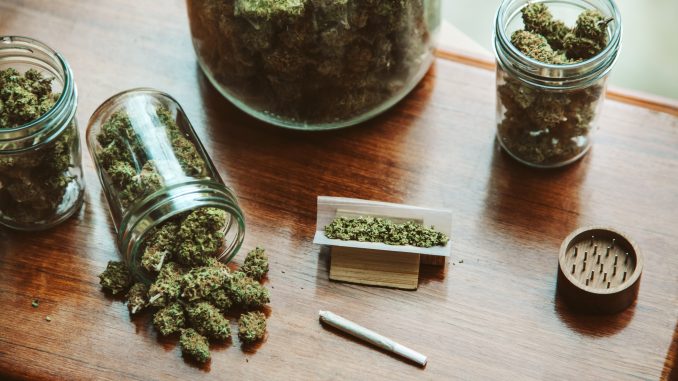
Previously Published in The Messenger
By Raheem Soto
After months of debate, the Islip Town Board voted on Tuesday to table a proposal that would have allowed retail cannabis dispensaries in town, maintaining its 2021 opt-out stance and leaving the future of local marijuana sales uncertain.
The move came after more than four hours of impassioned testimony from residents, prosecutors, youth advocates, and industry representatives, who packed Town Hall to weigh in on whether Islip should join nearby towns that have opted in to New York’s cannabis retail program.
Megan O’Donnell, executive assistant district attorney to Suffolk County District Attorney Ray Tierney, opened public comments by urging caution. She stated that her office was not taking an official stance. Still, she laid out concerns about the lack of roadside testing for marijuana impairment and rising cannabis-related hospital visits.
“Unlike alcohol, our state is devoid of any standardized roadside test for driving under the influence of cannabis,” O’Donnell said. “There is no breath test or immediate measure to protect drivers and pedestrians.”
“Unlike alcohol, our state is devoid of any standardized roadside test for driving under the influence of cannabis,” O’Donnell said. “There is no breath test or immediate measure to protect drivers and pedestrians.”
O’Donnell cited state data showing that 4,500 Long Islanders sought hospital care in 2024 for cannabis-related issues, with teens ages 15 to 19 representing the highest rate. “Someone is paying those bills, and paying for the aftercare. That’s a cost to the entire community,” she said.
She also reminded board members that under state law, once a town opts in, it cannot later opt out, regardless of problems. “Local laws are strictly limited to regulating time, place, and manner — and all are subject to being overruled by Albany,” she said.
Dozens of residents took turns urging the board to keep marijuana shops out of Islip, raising concerns about youth exposure, traffic safety, and community values.
Kevin Crumblish, a retired NYPD detective, said he had seen the damage firsthand. “I spent 20 years in law enforcement. I’ve seen nothing but horror. I’ve seen homicides tied to marijuana,” he said. “Why even consider this when our town has existed for centuries without it?”
Debbie Kavanagh, a Central Islip school board member, warned that cannabis could set children on a dangerous path. “Marijuana is a gateway drug for our kids. It damages their bodies, their minds,” she said. “If you vote for this, I promise I’ll work tirelessly to see you don’t get reelected.”
Even teens stepped up. Adonis Cheese, a 15-year-old Oakdale student, said he was there to protect his peers. “Putting dispensaries here is almost like trying to get rid of us,” he said. “We need to protect my generation.”
Longtime Islip resident John Bugler, 89, drew on his own experiences with strokes to warn about the dangers to young brains. “Marijuana cripples the developing brain. It leaves kids fishing for words later in life, like I do now,” he said.
Cannabis advocates countered that legal sales would displace thriving illegal shops and bring tax revenue to fund local services.
Gary Oali, president of the Long Island Cannabis Coalition and an Islip native, said illegal shops flourish because the town has shut out licensed businesses. “They have no fear. They sell untested products, advertise to kids, and pocket cash tax-free,” he said. “Licensed dispensaries can’t market to children, can’t display products in windows, and are regularly checked by state regulators.”
Oali noted there have been no complaints filed against any licensed dispensary on Long Island. “Legal sales actually reduce crime and nuisance issues because they remove the criminal element,” he said.
Kiana Beier Anderson of the Long Island Progressive Coalition argued the decision also carried weight for racial and economic justice. “The same communities that were arrested and jailed for marijuana are now shut out of the profits,” she said. “Is that what we want for Islip?”
Michelle Cole, a small-business owner in Babylon, described how tax dollars from dispensaries have indirectly helped the local business districts thrive. “I encourage you — take a drive to Babylon and see how tightly regulated these stores are. It’s parents and professionals shopping, not what you see on TV,” she said.
Board split on path forward.
In the end, Councilman Michael J. McElwee Jr. made a motion to table the opt-in resolution, saying the town first needed to crack down on illegal sales.
“This isn’t saying there will never be a path forward,” McElwee said. “But for now, the wise move is to table this, work with Suffolk County police and code enforcement, and shut down these shops that are selling to kids.”
The motion passed 4-1. Councilman James P. O’Connor cast the lone “no” vote, saying the board should have taken a clear stand that day.
“People came here month after month to make their case. Let the chips fall where they may. The public deserves to know where each of us stands, not to see more delays,” O’Connor said.
Supervisor Angie Carpenter reaffirmed that youth safety remains the board’s top priority. “We’ve heard loud and clear from parents, schools, and health professionals,” she said. “This board will always put the health of our children first.”
What’s next for Islip?
For now, Islip remains opted out, even as neighboring towns like Babylon, Brookhaven, Riverhead, and Southampton have moved ahead with cannabis retail. The board did not set a date to revisit the issue.
Meanwhile, residents and advocates on both sides are expected to continue pressing the board as New York continues its statewide push to establish a regulated cannabis market.

